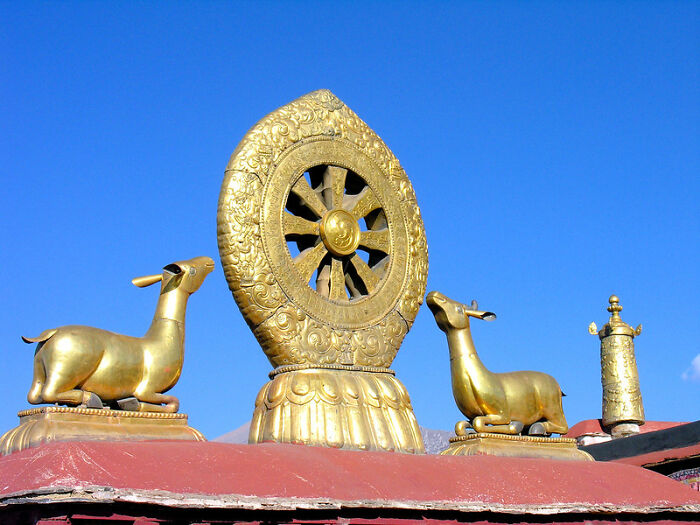Since time immemorial, when the Tower of Babel collapsed and all peoples began to speak their own languages (in fact, of course, since much more ancient times), each language has its own principles for the formation of words. For example, they say that the peoples living in the Far North have up to a hundred words that can mean snow.
And since languages have their own principles for composing words, it means that words are completely unique, unlike other languages. And the participants in this viral thread in the AskReddit community recall the most interesting and artsy words from their languages, which, according to them, are sorely missed in English. So here's the selection of the best examples and stories made for you by Bored Panda.
More info: Reddit
This post may include affiliate links.
 Definitely not my native language, but I love --
>“Kuchisabishii“ is a Japanese term which directly translates to 'lonely mouth; when you're not hungry, but you eat because your mouth is lonely.
Definitely not my native language, but I love --
>“Kuchisabishii“ is a Japanese term which directly translates to 'lonely mouth; when you're not hungry, but you eat because your mouth is lonely.
 In German we have the word 'Geborgenheit' which describes a very specific feeling of feeling cozy and safe and protected. Like you would feel when you're around loved ones sitting around a fire or when the person you love holds you under the warm covers when it's raining outside. I tried to explain this to someone the other day and when we googled the translation- it came up with 'cozyness' which really doesn't pay justice to what it actually means.
In German we have the word 'Geborgenheit' which describes a very specific feeling of feeling cozy and safe and protected. Like you would feel when you're around loved ones sitting around a fire or when the person you love holds you under the warm covers when it's raining outside. I tried to explain this to someone the other day and when we googled the translation- it came up with 'cozyness' which really doesn't pay justice to what it actually means.
 I miss roles in friendship distinguished in Polish.
“Kolega” is a friend who you like spending time with. Partying or chilling. You socialise and have a good time.
“Przyjaciel” is a friend whom you don’t need to keep in touch or have a good time. But when some bad thing is happening, you know you can call him.
I miss roles in friendship distinguished in Polish.
“Kolega” is a friend who you like spending time with. Partying or chilling. You socialise and have a good time.
“Przyjaciel” is a friend whom you don’t need to keep in touch or have a good time. But when some bad thing is happening, you know you can call him.
In fact, the uniqueness of many words comes from the fact that in the language from which they come, new words are formed simply by combining other, shorter words. This is the origin of, for example, the word Llanfairpwllgwyngyllgogerychwyrndrobwllllantysiliogogogoch - a Welsh town, whose name is today considered the longest in the world. By the way, according to one of the legends, initially the town had a much shorter name: Llanfairpwllgwyngyll, and only in the middle of the 19th century did the local mayor, willing to become famous, lengthen the name so much.
By the way, in the modern world, such names sometimes bring unexpected marketing effects. For example, the Llanfairpwllgwyngyllgogerychwyrndrobwllllantysiliogogogoch soccer club, which plays in the local semi-amateur league, recently acquired a powerful sponsor. It was the Spanish soccer league - La Liga, whose new logo contains two letters L combined. And in the name of said town in Wales, there are five such double L's - so from now the small club is guaranteed financial and marketing growth.
 There is a Japanese term “Komorebi”, for which no English translation exists. It roughly translates as “the scattered light that filters through when sunlight shines through trees”.
I love how some languages are able to describe such beautiful moments in life.
There is a Japanese term “Komorebi”, for which no English translation exists. It roughly translates as “the scattered light that filters through when sunlight shines through trees”.
I love how some languages are able to describe such beautiful moments in life.
 Backpfeifengesicht. "A face in need of a fist"
I'm not a violent person but I appreciate that this word exists.
Backpfeifengesicht. "A face in need of a fist"
I'm not a violent person but I appreciate that this word exists.
 My native language is a Native American language called Comanche and isn't a written language but the word sounds like "chaw-tamaw-tey-quat" and it basically is a socially acceptable way to say "I'm done speaking"
My native language is a Native American language called Comanche and isn't a written language but the word sounds like "chaw-tamaw-tey-quat" and it basically is a socially acceptable way to say "I'm done speaking"
The specific lifestyle that has developed among certain peoples over centuries of their history also largely determines the unique words in these languages. Hence, for example, there are many variations of epithets for spicy food in Spanish, or for long table conversations after a large dinner. Or, let's say, the already world-famous Danish word hygge, which denotes a feeling of coziness and comfortable communication with feelings of well-being and satisfaction. Over time, by the way, similar words can penetrate into other languages, becoming actually international.
 Kalsarikännit in Finnish. Literally "underwear drunk" , or more spesifically, "long john drunk".
Meaning deliberately getting drunk alone at home in your underpants with zero plans of meeting anyone or going out. I think other nations do this as well, but don't have a word for it.
Delightfully relaxing and therapeutic at times, slightly concerning if done exessively.
At best a wonderful opportunity to touch base with your self, your life and your deepest thoughts and feelings. And/or watch that one cheesy comedy from 1992 you love but can't get any of your friends to watch with you because they have standards.
At worst you wake up to an unholy mess accompanied by a killer headache, cheese all over the bed, cryptic messages on ripped up pieces of pizza box cardboard written by you to you all over the kitchen, and have nobody to blame than yourself.
I've seen it translated somewhere as "pants drunk", but actual pants are much too fancy attire for this. For full experience you need to wear your most comfortable, decades old long johns that have holes and a weird stain that somehow never comes off in the wash.
Kalsarikännit in Finnish. Literally "underwear drunk" , or more spesifically, "long john drunk".
Meaning deliberately getting drunk alone at home in your underpants with zero plans of meeting anyone or going out. I think other nations do this as well, but don't have a word for it.
Delightfully relaxing and therapeutic at times, slightly concerning if done exessively.
At best a wonderful opportunity to touch base with your self, your life and your deepest thoughts and feelings. And/or watch that one cheesy comedy from 1992 you love but can't get any of your friends to watch with you because they have standards.
At worst you wake up to an unholy mess accompanied by a killer headache, cheese all over the bed, cryptic messages on ripped up pieces of pizza box cardboard written by you to you all over the kitchen, and have nobody to blame than yourself.
I've seen it translated somewhere as "pants drunk", but actual pants are much too fancy attire for this. For full experience you need to wear your most comfortable, decades old long johns that have holes and a weird stain that somehow never comes off in the wash.
 Perhaps not missing per se, but the distinction between uncle from your mothers side or your Fathers side and their kids.
Farbror, morbror, faster, moster.
Systerson, brorson, systerdotter and brorsdotter. In English all of these words mean uncle, uncle, aunt, aunt, nephew, nephew, niece and niece.
Farbror = Fathers brother
Morbror = Mothers brother
Faster = Fathers sister
Moster = Mothers sister
Systerson = Sisters son
Brorson = Brothers son
Systerdotter = Sisters daughter
Brorsdotter = Brothers daughter
Perhaps not missing per se, but the distinction between uncle from your mothers side or your Fathers side and their kids.
Farbror, morbror, faster, moster.
Systerson, brorson, systerdotter and brorsdotter. In English all of these words mean uncle, uncle, aunt, aunt, nephew, nephew, niece and niece.
Farbror = Fathers brother
Morbror = Mothers brother
Faster = Fathers sister
Moster = Mothers sister
Systerson = Sisters son
Brorson = Brothers son
Systerdotter = Sisters daughter
Brorsdotter = Brothers daughter
 From Spanish: estrenar (verb): to use something for the first time.
From Spanish: estrenar (verb): to use something for the first time.
A special place is occupied by artificial languages, invented either by linguists for universal communication - such as Esperanto, or by writers for the needs of their own books (or both at the same time - as in the case of John R.R. Tolkien, who, being a professional linguist himself, created a whole fantastic world around the artificial languages he invented). Sometimes single words from such languages slip into our speech. Especially if the literary source is successfully filmed. As a result, for example, we know about the Dothraki or Valyrian languages from the books of George R.R. Martin. Valar morghulis!
 English should definitely have a word that's not "spicy" or "hot" to describe capsaicin's flavor/effect on your mouth. "Picante" is the word we have in spanish for it
English should definitely have a word that's not "spicy" or "hot" to describe capsaicin's flavor/effect on your mouth. "Picante" is the word we have in spanish for it
Picante has actually been adopted into the English language because "mild but spicy" is such a clumsy expression.
 Simple one. Te amo in spanish means i love you.
Te quiero means i love you as a friend.
In english you use the same word for different things. You can say i love you to a friend, but i would never use te amo in that case.
Simple one. Te amo in spanish means i love you.
Te quiero means i love you as a friend.
In english you use the same word for different things. You can say i love you to a friend, but i would never use te amo in that case.
 Swedish
Skadeglädje=German,Schadenfreude=to be happy when something bad happens to other.
Swedish
Skadeglädje=German,Schadenfreude=to be happy when something bad happens to other.
"Happiness at the misfortune of others." That IS German! (I know firsthand)
Despite the fact that the universal trend in the development of most languages of the world is their constant simplification, new words appear literally every year and in large numbers. So please feel free to read this list to the very end, try to remember the best words from this selection and probably add your own examples in case English isn't your native language. And who knows, maybe in several years some words from this list will become a tradition for English, because the practicality and beauty of the language are the most important thing.
 “Saudade”
it has a similar meaning to “miss you” but we have a direct translation for that “senti sua falta”, saudade has more of an emotional feel to it, it’s really hard to explain, it’s deeper than simply missing someone
Btw I’m Brazilian so the language is Portuguese
“Saudade”
it has a similar meaning to “miss you” but we have a direct translation for that “senti sua falta”, saudade has more of an emotional feel to it, it’s really hard to explain, it’s deeper than simply missing someone
Btw I’m Brazilian so the language is Portuguese
It's also used to express that nostalgia feeling. You can feel saudade of a long time gone, of some food or taste, of something and so on.
 croatian: vukojebina
it describes a place that is far away from civilisation. It means sth like where the wolves f**k.
croatian: vukojebina
it describes a place that is far away from civilisation. It means sth like where the wolves f**k.
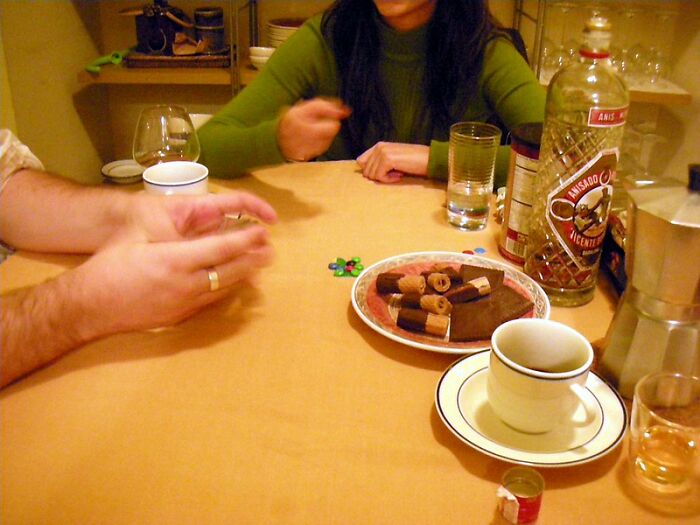 Sobremesa (Spanish): after a meal when you sit around the table talking.
That's the best part - why don't we have a word for it!
(Note: Spanish is not my native language, but I do know quite a bit).
Sobremesa (Spanish): after a meal when you sit around the table talking.
That's the best part - why don't we have a word for it!
(Note: Spanish is not my native language, but I do know quite a bit).
We call this '5 minutes before my sister melts down because someone asked her if she has a job yet', but Sobremesa works too.
 Japanese has loads of words that require entire sentences to explain in English. My favorite of all time is *tachiyomi*, which means "standing at a newsstand reading something without any intention of paying for it".
Japanese has loads of words that require entire sentences to explain in English. My favorite of all time is *tachiyomi*, which means "standing at a newsstand reading something without any intention of paying for it".
 Dunno if it exists in other languages, but my god we need two versions of 'we'
we = me and you
we = me and my buddies, but not you
Dunno if it exists in other languages, but my god we need two versions of 'we'
we = me and you
we = me and my buddies, but not you
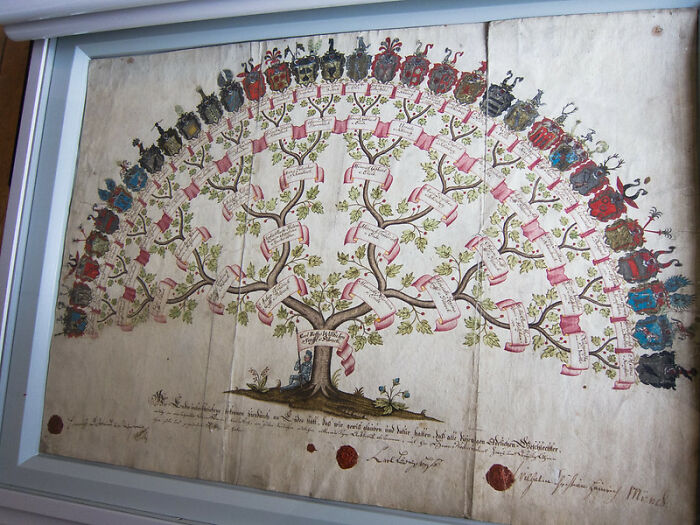 English doesn't define cousins as clearly as my native language. We have different names for each parent side, the generation, related by blood or marriage.
English doesn't define cousins as clearly as my native language. We have different names for each parent side, the generation, related by blood or marriage.
I'm from Alabama. I try not to ask too many questions about how I'm related to cousins.
 Empalagoso (when something is too sweet that you get kinda yucked out)
Sobremesa (relaxing at the dinner table after eating with conversation)
Cabron/a
Empalagoso (when something is too sweet that you get kinda yucked out)
Sobremesa (relaxing at the dinner table after eating with conversation)
Cabron/a
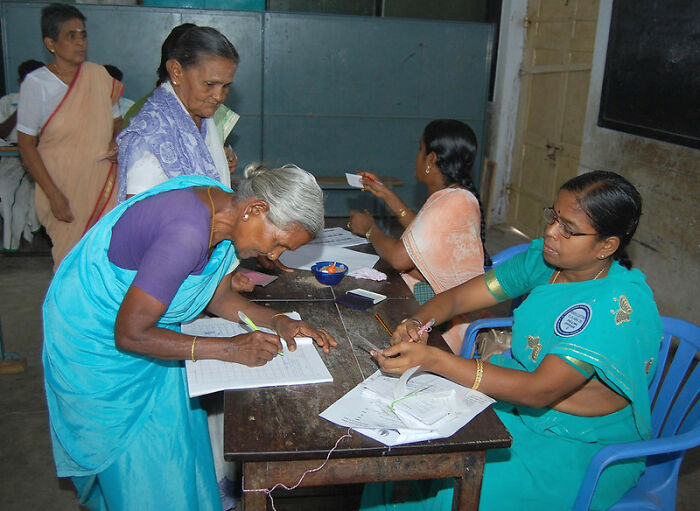 Different words elder brother, elder sister, younger brother, younger sister. Anna, Akka, Thambi, Thangachi respectively. In my country everyone calls literally everyone else, except family, using these words, regardless of station/class/hierarchy. But really older women are exceptionally called Amma (mother).
Edit: Language name is Tamil.
Different words elder brother, elder sister, younger brother, younger sister. Anna, Akka, Thambi, Thangachi respectively. In my country everyone calls literally everyone else, except family, using these words, regardless of station/class/hierarchy. But really older women are exceptionally called Amma (mother).
Edit: Language name is Tamil.
In Bulgarian we also have words for older sister - "kaka" / "кака", older brother : "batko" /"батко".
 Lagom (swedish)
It means not bad, and not too good. Just an average between. A very neutral word.
For example, when you wash your hands, the water should be lagom hot. Not cold, not scalding hot. Just lagom.
Lagom (swedish)
It means not bad, and not too good. Just an average between. A very neutral word.
For example, when you wash your hands, the water should be lagom hot. Not cold, not scalding hot. Just lagom.
 Gigil? It's when something's so cute you get this sort of feeling of violence? I don't think I'm explaining it right. Kilig is also a similar feeling, but that one is for love; something's so romantic it gives you goosebumps? Or makes you giddy.
Gigil? It's when something's so cute you get this sort of feeling of violence? I don't think I'm explaining it right. Kilig is also a similar feeling, but that one is for love; something's so romantic it gives you goosebumps? Or makes you giddy.
That word defines the feeling you have when you see a baby so cute and adorable you want to eat them up.
 Outwith. It’s a word in Scots but not in English. It means beyond the bounds of something- the nearest English equivalent is ‘outside’ but it doesn’t mean the quite same thing
Outwith. It’s a word in Scots but not in English. It means beyond the bounds of something- the nearest English equivalent is ‘outside’ but it doesn’t mean the quite same thing
I'm English, and I use it occasionally. Usually when I'm talking about something being "outwith my area of responsibility" or "outwith my area of expertise." So basically, it's nothing to do with me, and I know nothing about whatever it is.
 见外 (jiàn wài) - the sentiment is that a good friend is using the same level of politeness with you that you'd expect from a stranger, not someone of your closeness.
Like if your friend forgot their wallet at lunch so you pick up the check, and they promise to make it up to you, you might tell them to stop acting so polite, of course you're happy to pay for lunch because you're best friends.
见外 (jiàn wài) - the sentiment is that a good friend is using the same level of politeness with you that you'd expect from a stranger, not someone of your closeness.
Like if your friend forgot their wallet at lunch so you pick up the check, and they promise to make it up to you, you might tell them to stop acting so polite, of course you're happy to pay for lunch because you're best friends.
 In my native language (I am sure in many more) there are terms for the day after tomorrow and the day before yestrday. Like english what the hell. You need that. Bruh, in my language there is a world for TWO days after tomorrow or TWO days before yestrday.
I mean english has a word for throwing someone out of a window but not this. Cmon.
Edit: there is also this great word that is: skršiti se.
It translates somewhere along the lines falling hard/falling abruptly. Idk when you say it in my language it means they fell really funny, but (most of the time didn't hurt them self). It's used in a funny context.
In my native language (I am sure in many more) there are terms for the day after tomorrow and the day before yestrday. Like english what the hell. You need that. Bruh, in my language there is a world for TWO days after tomorrow or TWO days before yestrday.
I mean english has a word for throwing someone out of a window but not this. Cmon.
Edit: there is also this great word that is: skršiti se.
It translates somewhere along the lines falling hard/falling abruptly. Idk when you say it in my language it means they fell really funny, but (most of the time didn't hurt them self). It's used in a funny context.
 Gatvol (Afrikaans) - can't be properly translated into anything as everything you try is too tame. Something along the lines of being really fed up but much more expressive
Gatvol (Afrikaans) - can't be properly translated into anything as everything you try is too tame. Something along the lines of being really fed up but much more expressive
 The French word "chez" as in "Chez moi" roughly translates as "Place" but it is soooo much more versatile.
The Tahitian word "ma" as in "ona ma" is a word used to refer to a person and everyone with them. I've heard it described as "posse" in English, but that doesn't really do it justice.
The English word "get" needs to be adopted by every other language. I mean, what other language just has a catch-all for verbs? It can be used as a substitute for the following:
-to become
-to come
-to have
-to grab
-to understand
-to stand
-to go
and so much more
If you know how to conjugate and use "get" it's like a cheat code for the English language.
The French word "chez" as in "Chez moi" roughly translates as "Place" but it is soooo much more versatile.
The Tahitian word "ma" as in "ona ma" is a word used to refer to a person and everyone with them. I've heard it described as "posse" in English, but that doesn't really do it justice.
The English word "get" needs to be adopted by every other language. I mean, what other language just has a catch-all for verbs? It can be used as a substitute for the following:
-to become
-to come
-to have
-to grab
-to understand
-to stand
-to go
and so much more
If you know how to conjugate and use "get" it's like a cheat code for the English language.
 In norwegian we have "pålegg" which basically is toppings you have on bread like cheese, salami and even f**in spreads like nutella, nugatti and even f**in peanut butter I don't think butter itself counts as pålegg as it's technically just this extra thing you put on before the pålegg itself
In norwegian we have "pålegg" which basically is toppings you have on bread like cheese, salami and even f**in spreads like nutella, nugatti and even f**in peanut butter I don't think butter itself counts as pålegg as it's technically just this extra thing you put on before the pålegg itself
Is this one of those "Guess if it is an IKEA name or a swear word" quizzes again?🤨
 Voilà
Voilà
eh, this one has kinda just been adopted into English, though. or in english use "tah-dah!" too
 Ohrwurm is german is wordly translated as "earworm"
When a song plays in ur head over and over again and u cant turn it of u have an Ohrwurm
Ohrwurm is german is wordly translated as "earworm"
When a song plays in ur head over and over again and u cant turn it of u have an Ohrwurm
Same in English .... My favourites are ' I can hear it coming in the air tonight ' by Phil Collins - including the dum dum dum dum ta dum on the drums and 'Billie Jean' by Michal Jackson. I thank you, you will have those tunes in your head for at least 3 hours ... tee he, I'm a bad man.
 Other words to express love … (not my native tongue) but Greek has it right
‘I love you’ is so fraught with unnecessary pressure and a singular meaning
Other words to express love … (not my native tongue) but Greek has it right
‘I love you’ is so fraught with unnecessary pressure and a singular meaning
 Not my native tongue, but I love "luce" in Farsi (Persian). It basically means intentionally acting all cutesy/precious/coy because you think it's appealing.
There were so many sorority girls it applied to.
Not my native tongue, but I love "luce" in Farsi (Persian). It basically means intentionally acting all cutesy/precious/coy because you think it's appealing.
There were so many sorority girls it applied to.
Farsi is one of my favorite languages to hear spoken out loud.
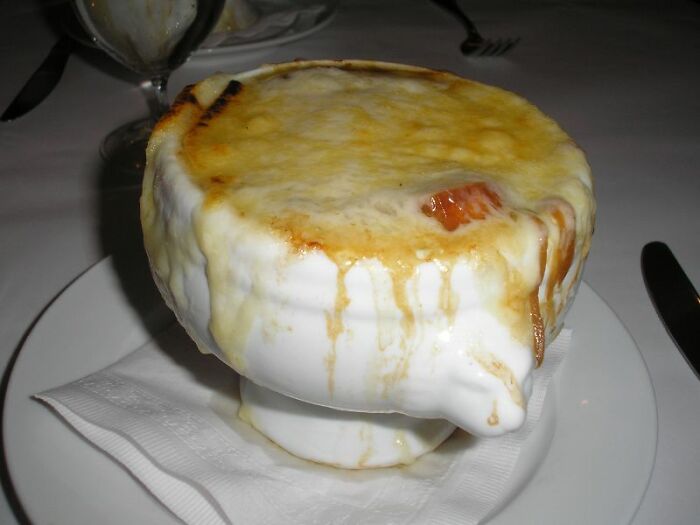 Gratiné: covered with cheese and broiled until golden. Garlic bread gratiné.
Gratiné: covered with cheese and broiled until golden. Garlic bread gratiné.
 "Doch" - missed every single day
"Doch" - missed every single day
It’s a german word with lots of meanings in different contexts. Just copying a random link describing some of it’s many uses: https://www.germanmind-method.ie/post/how-to-use-the-german-word-doch
 Feierabend - German for the end of a workday
Feierabend - German for the end of a workday
 "Załatwić " in Polish.
It means to get something done using connections/ persuasion/ back room dealings.
"Załatwić " in Polish.
It means to get something done using connections/ persuasion/ back room dealings.
I’m guessing a lot of Eastern European languages probably have similar words for “getting it done” that also imply special connections and/or payoffs. Definitely not meant to be insulting, but historically this was/is a fundamental part of getting things done in their economies…
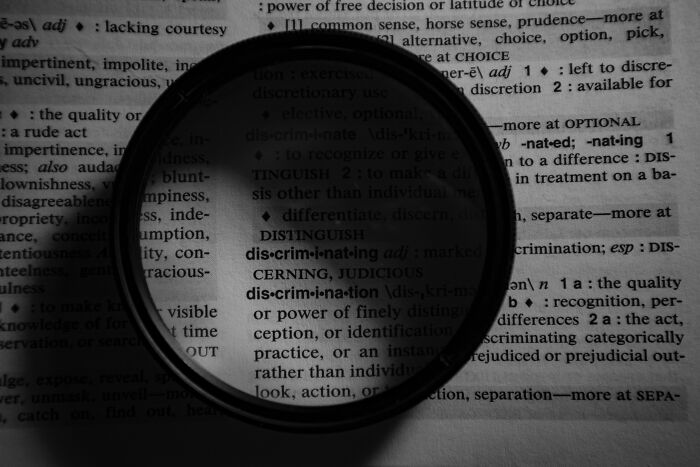 In spanish we have the verbs “ser” and “estar”, which are two very different verbs, and they both are translated to “to be”. Idk what’s up with that.
In spanish we have the verbs “ser” and “estar”, which are two very different verbs, and they both are translated to “to be”. Idk what’s up with that.
Ser means to be as in existence. Estar means to be as in location or temporary state of being.
 24 hours. In English you just call it "day"
But in my native language we have one more word besides "day"
24 hours. In English you just call it "day"
But in my native language we have one more word besides "day"
English needs a word for "even though I love my family, I'm overjoyed to have the house to myself".
The French word "con". Substantive or adjective but always expletive. Not really polite, but accepted., especially in some southern regions of France, where it's mostly just punctuation. Originally meant female genitalia, but is never used that way any more. Mostly means dumb or stupid, but can have à variety of meanings, depending on who says it, to whom, in which tone, and with what adjective added to it. "Vieux con" is an old f*rt, "petit con" is a little pr*ck, "gros con", "sale con" and " connard" all mean as*hole. "Ça, c'est con!" means "tough!" and can be either commiserating or ironic. "Pauvre con!" is angrily contemptuous. "Connerie" can mean a bad mistake, a state of extreme stupidity, or just bulls*hit. And the derived verb " déconner" means " to f*ck up".
The English language C word also has a multitude of meanings including many of the above, but can also be used in an almost affectionate way among close friends. e,g, "You jammy c* " in colloquial British and Aussie English.
Load More Replies...I've always loved the German word "Fahrvergnügen" which translates to "joyride".
Wait, is that really what it means?! There's a horse with that name in Robin Hood: Men In Tights but I never considered it had an actual translation.
Load More Replies...One that both Serbs and Greeks use is bre/vre/re - it does not translate. It is used in informal conversation when you're trying to stress the words you're using, something along the lines of the English "f*****g" as used in a sentence like "this if f*****g Sparta" but it is not a cuss word per se, only if you use it in a sentence like that. So you'll say "this is Sparta bre/re!". And it does not really correlate to the use of bro, because saying bre isn't always referring to a person
Gezellig, lekker, afbellen en afblazen, voorpret, plaatsvervangende schaamte, leedvermaak.
The languages with a strong root to German languages - the Scandinavian languages, german and other has lots of word that can be a bit daunting to a English speaker. We have a strong tradition of composed word - way more then the English and languages that came from Latin.
This was HORRIBLY researched. English has words and phrases for most of them.
Told this story here before but here we go; a Swedish friend once told me there was a word in Swedish for ‘making a mark with a penis’, it’s possible she was winding me up as she was a real joker, wish I could remember the word though as she’s no longer here to ask, it’s one of those things that is going to big me for the rest of my life, so any swedes out there help a girl out haha
English needs a word for "even though I love my family, I'm overjoyed to have the house to myself".
The French word "con". Substantive or adjective but always expletive. Not really polite, but accepted., especially in some southern regions of France, where it's mostly just punctuation. Originally meant female genitalia, but is never used that way any more. Mostly means dumb or stupid, but can have à variety of meanings, depending on who says it, to whom, in which tone, and with what adjective added to it. "Vieux con" is an old f*rt, "petit con" is a little pr*ck, "gros con", "sale con" and " connard" all mean as*hole. "Ça, c'est con!" means "tough!" and can be either commiserating or ironic. "Pauvre con!" is angrily contemptuous. "Connerie" can mean a bad mistake, a state of extreme stupidity, or just bulls*hit. And the derived verb " déconner" means " to f*ck up".
The English language C word also has a multitude of meanings including many of the above, but can also be used in an almost affectionate way among close friends. e,g, "You jammy c* " in colloquial British and Aussie English.
Load More Replies...I've always loved the German word "Fahrvergnügen" which translates to "joyride".
Wait, is that really what it means?! There's a horse with that name in Robin Hood: Men In Tights but I never considered it had an actual translation.
Load More Replies...One that both Serbs and Greeks use is bre/vre/re - it does not translate. It is used in informal conversation when you're trying to stress the words you're using, something along the lines of the English "f*****g" as used in a sentence like "this if f*****g Sparta" but it is not a cuss word per se, only if you use it in a sentence like that. So you'll say "this is Sparta bre/re!". And it does not really correlate to the use of bro, because saying bre isn't always referring to a person
Gezellig, lekker, afbellen en afblazen, voorpret, plaatsvervangende schaamte, leedvermaak.
The languages with a strong root to German languages - the Scandinavian languages, german and other has lots of word that can be a bit daunting to a English speaker. We have a strong tradition of composed word - way more then the English and languages that came from Latin.
This was HORRIBLY researched. English has words and phrases for most of them.
Told this story here before but here we go; a Swedish friend once told me there was a word in Swedish for ‘making a mark with a penis’, it’s possible she was winding me up as she was a real joker, wish I could remember the word though as she’s no longer here to ask, it’s one of those things that is going to big me for the rest of my life, so any swedes out there help a girl out haha

 Dark Mode
Dark Mode 

 No fees, cancel anytime
No fees, cancel anytime 





































